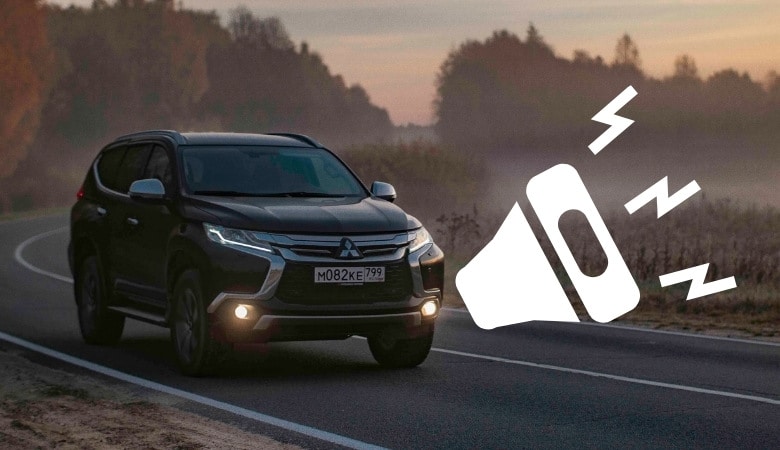Noisy tires, annoying isn’t it?
We all get annoyed by that disturbing “whooming” noise that some tires make, or worse, the screeching, flapping or grating sound that can occur when something is broken. No matter what, noisy tires are frustrating and we want to do everything we can to reduce it and/or avoid it.
In this post you will learn everything about tire noise, what it is, how noisy the different tire types are, and how to reduce tire noise.
What Makes a Tire Noisy?
The rough, screeching sound your tires make is annoying for you and others around you. But what is tire noise? The simple answer is that excessive tire noise can be caused by different things, but mostly it’s caused by natural friction between your tires and the road, poor rubber quality, improper inflation, high tread wear, damaged tires or wheels, damaged wheel suspension, or vibrations from other parts of your car.
When everything fits together just right, it’s like music to your ears, but when something isn’t quite right (like a missing improper inflation or a damaged wheel bearing), it can mean horrible screeching and grating noises. No matter what causes the noise in question, understanding how tires create sound can help you keep tabs on potential issues before they become worse or even dangerous.
If your tires are under-inflated, they’ll squeal as you take turns and as you use the brakes. This is because there’s not enough air pressure for your tires to roll smoothly over bumps and ruts in the road.
Another cause could be too little tread on your tires, low tread depth makes it harder to absorb small bumps on the road, causing them to vibrate and make noise, making it sound like you’re driving on railroad tracks when you’re actually cruising down a smooth road.
Finally, while rare, a defect in manufacturing may mean that one of your tires is actually just defective and makes noise when turned at low speeds.
Whether you get your tire fixed at home or brought into a shop depends on how bad the problem is. If it’s mild, you might simply want to fill up with some more air to get rid of the worst squeaks; if it’s more severe, bring them in for replacement instead.
If you want to learn more about various reasons that could cause tire noise, check out our post “12 Reasons Why You Have Noisy Tires: And How To Fix It” next.
Different Tire Types, Different Noise Levels
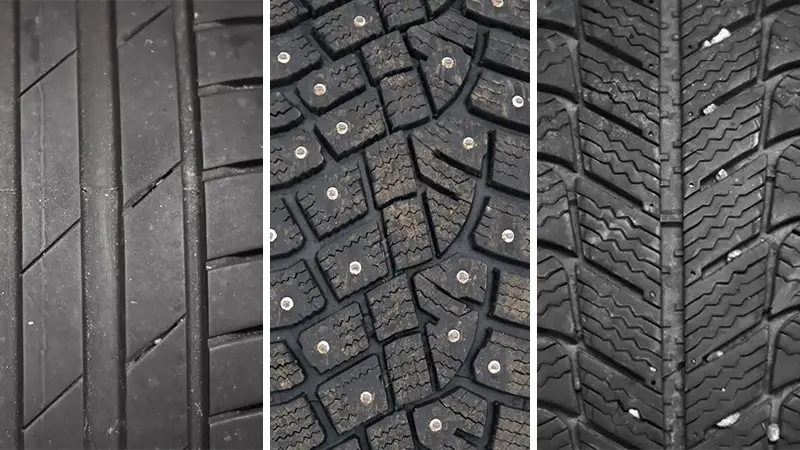
The type of tire you use will also affect how much it sounds when making friction with the road. For instance, studded winter tires will obviously make more noise when in contact with the road surface compared to smooth summer tires.
Now, even though a tire may be of the same type, different brands will also play a role in how noisy the tire are. Often times more expensive brands will have less noisy tires compared to cheaper brands.
With that said, here comes a list of the different tire types and their average noise levels:
All-Season/Touring Tires
These tires tend to be fairly quiet on both dry and wet roads, but as a trade-off, they can also feel mushy or vague at times. These are among your best options for long-term street performance, especially if you live in an area with frequent rain or snow.
If you decide to go with an all-season tire, make sure you stick with a reputable brand like Michelin, Bridgestone, Goodyear, or Continental. These brands often have better durability than their budget counterparts; it’s not uncommon for all-seasons to last 50,000 miles or more.
You may need to rotate them every 5K – 10K miles, though, as they are prone to uneven wear and tear over time, which will make them noisier.
You can read more about whether or not all-season tires are noisier than other tire types in this post.
Performance Tires
Let’s face it: performance tires are loud. When you look at sports cars, coupes, and luxury sedans, these vehicles are typically equipped with performance tires, and in many cases, these types of cars also have louder tires than average cars.
Studded Winter Tires
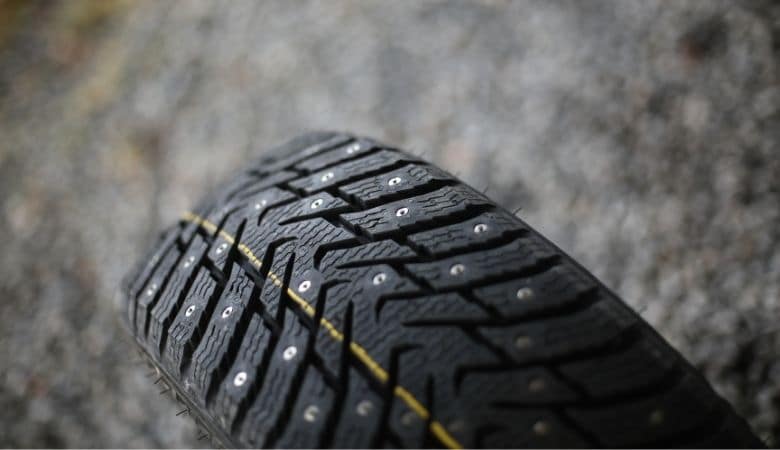
These ultra-aggressive tires are great for driving on ice and snow, but because of the studs they make a lot of noise.
Not only that, they can lower your gas mileage by as much as 4 percent. So while they might be fine in places with a lot of snow and ice, these are probably not your best bet if you live in an area that doesn’t get much snow or cold weather.
If you don’t need them all year round, you can take advantage of special deals offered at tire shops throughout the country during the winter tire changeover season.
Track And Competition Tires
Track and competition tires are loud. Therefore, it may be wise to choose them when racing in areas where sound pollution isn’t an issue. For example, racetracks typically enforce strict sound regulations – meaning you won’t have to worry about your new Supersports getting a ticket. (But keep in mind that state laws vary; check with your local DMV.)
These are generally intended for use on high-powered vehicles (300+ HP).
All-Terrain Tires
All-terrain tires are similar to all-season/touring tires both when it comes to their uses as well as how much noise they make. This type of tire has a tread pattern that is meant to handle any terrain, even snowy or muddy. You may want to consider a set of all-terrain tires if you live in an area with harsh weather conditions.
All-terrain tires can help you tackle snow and mud without worrying about damaging your wheels or suspension. Additionally, they may offer better handling on unpaved surfaces than other types of tires.
It’s important to note that all-terrain tires are typically larger than most others, which increases their overall weight and lowers their gas mileage. In addition, they tend to be more expensive due to their specialized design and rugged construction material.
But if you frequently drive off-road and through inclement weather, then these disadvantages might not matter. If used properly, all-terrain tires could save you from getting stuck in snow or mud – not to mention increase your driving safety by giving you added traction on rain-slicked roads.
Summer Tires
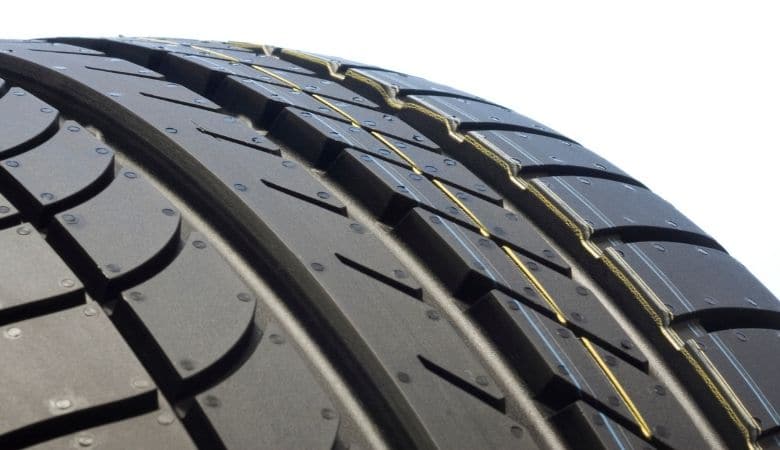
The summer tires of today are much quieter than in previous years. However, they still can be noisy on certain roads like chip-seal or gravel and are not ideal for off-roading or muddy, rocky terrain.
If you have other tire types to choose from and plan to take your vehicle off-road or drive onto bad terrain regularly, then summer tires should probably be your last choice, even if they produce less road noise on clean roads.
Mud-Terrain Tires
The mud terrain tire was designed for use in off-road terrain. These tires were designed to be durable and offer traction in many soil types; however, they are not intended for on-road driving and may produce an obnoxious noise that some drivers find annoying.
Mud terrains should only be used if your vehicle is designated to hace mud-terrain tires installed. Unless you have a four-wheel-drive truck, you probably don’t need mud-terrain tires; ask your mechanic before purchasing them or look for another option. Depending on what type of vehicle you have, a specialized replacement tire may work better than a mud terrain one—especially if they’re illegal for use on public roads anyway.
Also, be sure to check with local laws governing which tires can be driven on-road and which ones must remain stored until you go back onto unpaved surfaces.
Ribbed Tires
If there is one thing that will wake up everyone in your neighborhood, it’s a tire with too much tread. The sawing and rattling noise of overly aggressive tires on a road surface have led to them being coined as ribbed. More advanced tread patterns create better traction but come at a cost: noisier driveways and streets.
If you live close to other houses or apartment buildings, you may want to invest in smooth-rolling tires to be more considerate of others around you. On top of all of these downsides, these types of tires wear down faster than their alternatives.
If you don’t care about being inconsiderate, then go for it. You won’t find louder tires anywhere else out there. Your best options here are Pirelli Scorpion Verde All Season Plus Run Flat Tires and Hankook Ventus S1 Noble2 Tires – both are quite affordable.
Studless Winter Tires
These tires are made of rubber that has a lot of texture and grooves. They are used in areas where there is a lot of snow or salt, which makes them wear down faster.
They also produce less noise than other tires when driven on snowy surfaces. This means drivers can drive more safely and quietly on cold roads in winter. These tires are also low-profile, which means they can’t support heavyweights, so they aren’t suitable for all cars. Small vehicles like sports cars generally use these types of tires during winter.
Steel Belted Radial Tires
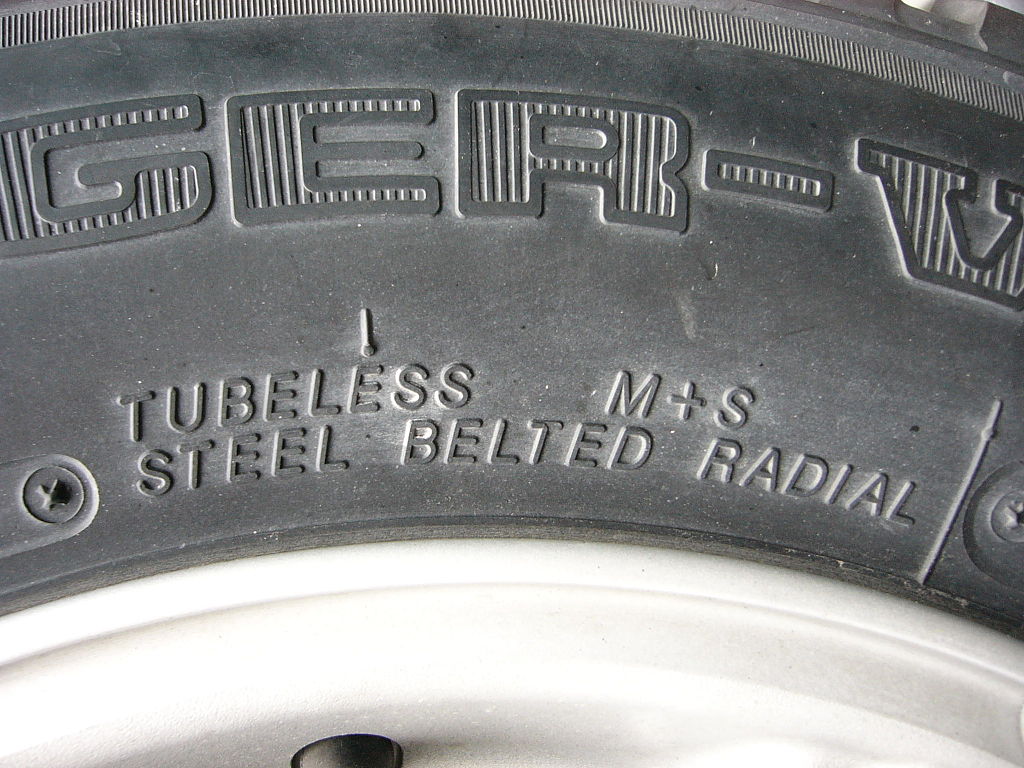
This is one of the most popular tires on today’s roads. They are commonly used in family cars and pickup trucks because they provide a smooth ride, good traction, and long tread life. Their steel belts offer excellent strength and resistance to punctures, which is why they often come standard with heavy-duty vehicles.
Steel Belted Radials are louder than other tires but not excessively compared to others in their class. While it may be true that some sizes are louder than others, no standards have been set for noise ratings for these types of tires.
The extra noise might be worth it to get extra confidence from having an armored tire under your vehicle. For very noisy Steel Belted Radial tires, you can try driving them for a few hundred miles before you judge how noisy they truly are.
Pneumatic Tires
When it comes to noisiness, pneumatic tires take first place by a large margin. The main component of most tire noise is a tire roar, which you can hear if you listen closely while driving. It sounds a bit like an idling airplane, and its intensity depends on how fast you’re driving and how soft or hard your suspension is set up.
You can change tire roar—or any other type of tire noise—by adjusting your shock absorbers. Though we won’t go into detail here, if you want to make some noise, there are even ways to add an artificial rumble for when your car isn’t moving (the old standby rumble strip.).
A common misconception about pneumatic tires is that they get louder as they wear down. While it may be true in a few cases, in general, for pneumatic tires, loudness has little to do with tread life.
This is because less noise doesn’t always mean better traction either; racing slicks have significantly more traction than mud-terrain treads but can also make much more noise than their aggressive cousins.
How To Reduce Tire Noise
Increased road noise is a problem for modern vehicles. The increase in road noise is largely due to new vehicle technology and city driving.
Here are some steps you can take to reduce tire noise:
- First, check your tire pressure monthly and adjust it so your tires are inflated to 30 PSI when they’re cold (down from 35 PSI if you drive mostly on highways).
- Next, ask your mechanic about replacing worn tires with low-noise ones (low-noise will be stamped on some tire sidewalls). You might also want to look into a new set of higher-quality tires for better comfort and fuel efficiency.
- Finally, if possible, consider upgrading to a newer model car—newer cars tend to have quieter suspensions than older models, and that can help quite a bit with reducing road noise inside your car.
If you make all three changes listed above and still aren’t happy with the level of tire noise, then keep reading, you may need a soundproofing kit.
Depending on where exactly inside your vehicle you’re sitting while driving, there are different kits available to help reduce interior noise levels caused by tires. It’s worth doing because being comfortable is far more important than being quiet.
Sound proofing kits start at around $60, which isn’t cheap, but it’s cheaper than paying $800+ every time you need new tires just because they sound too much. Just something to think about.
Below is an image of a sound proofing kit for cars, available on Amazon here.

If nothing else, it is an easy DIY project and an inexpensive way to solve your tire noise problems. There are lots of videos online that show you how to install these items yourself, like this one:
When buying these products, please make sure they doesn’t affect any electronic devices like GPS systems, FM radios, etc. And don’t forget, no matter what kind of tires/struts you decide to get – always remember to replace them regularly too, just like windshield wipers, etc.
Conclusion
It is obvious that tires make noise when you drive, but it may be surprising how much of a difference some types of tires can make.
As you can see, some tires will tend to be louder than others. You need to make sure that you get a new set of tires from a reliable seller if you plan to make your purchase online. The noisiest tires should be avoided for those who live in areas with a lot of traffic or during summer months when everyone has their windows open.
In addition to these considerations, some people might find that they don’t like having other people hear them coming down a street or in an alleyway and are looking for ways to silence their vehicle’s sound systems.
With so many different options available on the market today, it should be fairly easy to find something that will work best for your particular needs. Choose wisely.
Hi, my name is Niklas, the head content creator & CEO of Whirling Wheelz. I am very interested in vehicles of all kinds, mainly cars. I have a car mechanics degree from high school and a big hobby of mine is to follow the WRC (World Rally Championship) both online and through travel.

